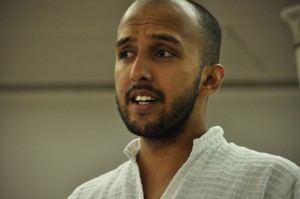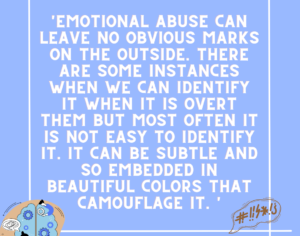Youth Project Of The Month: What Do Young People In Sri Lanka Think About Safe Abortion?
 In Sri Lanka, restrictive laws allow abortion to be performed only if the mother’s life is in danger. Because of the unmet needs for safe abortion, several women and girls are forced to continue their pregnancies or undergo unsafe abortion. The Family Planning Association of Sri Lanka estimates that 1000 to 1250 abortions are performed every day.
In Sri Lanka, restrictive laws allow abortion to be performed only if the mother’s life is in danger. Because of the unmet needs for safe abortion, several women and girls are forced to continue their pregnancies or undergo unsafe abortion. The Family Planning Association of Sri Lanka estimates that 1000 to 1250 abortions are performed every day.
Young girls bear a disproportionate share of this burden. Because of the stigma against sex, their access to contraception and comprehensive sexuality education is restricted along with their access to safe abortion. The FPASL estimates that 40,000 teenage pregnancies take place every year. Girls forced to continue their pregnancies as well as those driven to risk an unsafe abortion suffer health consequences, some of whom have had to drop out from school.
 ASAP Youth Champion Dakshitha Wickeremaratne received a grant from ASAP to conduct a survey among young people in Sri Lanka on their knowledge and attitude towards safe abortion. The project’s results can be used in the coming years to shape youth-friendly policies and law in Sri Lanka.
ASAP Youth Champion Dakshitha Wickeremaratne received a grant from ASAP to conduct a survey among young people in Sri Lanka on their knowledge and attitude towards safe abortion. The project’s results can be used in the coming years to shape youth-friendly policies and law in Sri Lanka.
Dakshitha Wickremaratne is a youth leader in Sri Lanka, and has worked closely with the Family Planning Association of Sri Lanka and the UNFPA to promote comprehensive sexuality education and contraception. He became a champion for safe abortion rights for ASAP after participating in our Youth Advocacy Institute in 2012.
The respondents in this study were undergraduate students enrolled in various courses in Sri Lankan universities, including fields that could influence medical services, law and policy. An equal number of male and female students were interviewed. The questionnaire presented to the respondents probed their knowledge about the abortion law, their view on the restrictions, their knowledge about the effect of the restrictive law, their moral standing, and their perspectives on liberalization of the law.
The survey showed that 65.2% (643) were aware that abortion was legalized in Sri Lanka under special conditions. Only 42.13% (415) knew the special condition was the threat to the life of the mother. 83% said Poor women have the most difficulty in getting safe abortion services even if they are legal.
 48.52% (478) said that the prevailing abortion law should be relaxed in which 212 (44.3) were males and 266 (55.7) were females. The reasons were rights of women should be recognized, in cases of women living under the poverty line, rape and incest. Out of the 478, 29% was social science students and 15.3% were medical students. 305 (30.96%) said that the prevailing law shouldn’t be changed, while the rest thought abortion was an immoral act,going against the culture and religion.
48.52% (478) said that the prevailing abortion law should be relaxed in which 212 (44.3) were males and 266 (55.7) were females. The reasons were rights of women should be recognized, in cases of women living under the poverty line, rape and incest. Out of the 478, 29% was social science students and 15.3% were medical students. 305 (30.96%) said that the prevailing law shouldn’t be changed, while the rest thought abortion was an immoral act,going against the culture and religion.
In addition to this, a multiple choice question section on the questionnaire fleshed out a few other commonly held beliefs.
- Only 35% said legalizing abortion has no relationship with promoting free sex
- 42% said abortion services are not usually required by married women
- 32% said permission of the husband should be necessary for obtaining an abortion
- 78% said religious laws around abortion are necessary to safeguard traditional moral values in society
- 62% said freely available abortion services lead to the moral corruption of society
The survey was an eye opener for advocates for safe abortion. The misconceptions about the unmet need for abortions, sex and sexuality that were fleshed out in the survey would help advocates, policy makes and other key stakeholders work towards introducing comprehensive sexuality education that could give undergraduate students a better idea of the public health and human rights consequences of unsafe abortion.
Dakshitha Wickremaratne is now working along with fellow Youth Champion Sarah Soysa on a campaign that hopes to shed light on the rights that are violated, when young women are denied access to safe abortion. We look forward to sharing that campaign soon.







